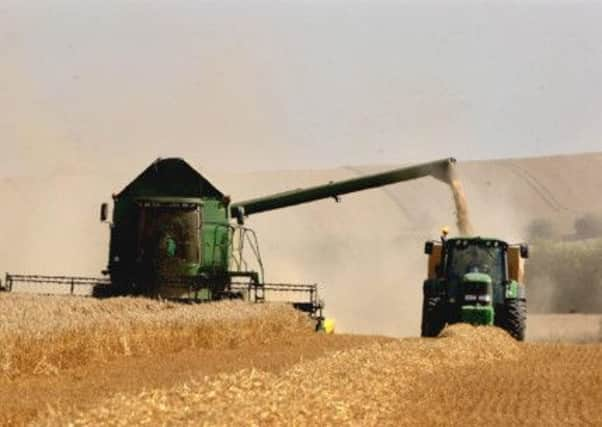Landowners outgrow an unfair stereotype


My family have lived at Balbirnie in Fife for many hundreds of years, and we have been farmers and landowners all that time. Nowadays we have only two tenanted farms, and the rest I farm (3,000 acres), so I feel more of a farmer than a landowner. Forty years ago we had seven tenants and were farming in-hand 1,100 acres, which was a big unit then. In the 1930s, we were farming in-hand around 700 acres, which, again, was a big unit.
There is no doubt that recent press articles have painted landowners in Scotland as distant, aloof and detached from what is going on around them. This stereotype is not only outdated, it’s a very unproductive characterisation which does little to encourage rural harmony and business.
Advertisement
Hide AdAdvertisement
Hide AdLike many other farmers, I am proud to feel I am following in the footsteps of parents and grandparents who had such a strong attachment to this land. Both generations were heavily involved with the East of Scotland College of Agriculture, a forerunner of SRUC, Scotland’s Rural College. They were also prepared to take risks with new ventures, such as installing a bottling plant for the dairy. I even experimented with robot milking, until the financial climate made dairying unsustainable.
Our latest investment has been in a new grain handling and drying system, in which a woodchip biomass burner uses timber from our own forest.
We were fortunate to obtain financial assistance from the EU under the European Agriculture fund for the woodchip biomass burner. Farming fortunes are cyclical in nature, but as a family, over the generations we have been committed to finding ways to continue, to innovate and improve, and to embrace new technology.
We have six full-time and one part-time employees on the farming side of the business, so although we are one of the many local employers, the farm no longer employs huge numbers. Two decades ago, on a much smaller acreage we employed around 20 people. Much of the important work is now done on computers, so not everyone needs to get their hands dirty, although harvest time still sees all hands on deck.
In the 19th century my ancestors were major employers and entrepreneurs, with some influence in the local community. Now other local businesses make our operation seem very modest, and the major employers in the area, such as Diageo or Tullis Russell, have far greater influence than we ever did. As farmers, we only have influence in our local community if we put something into it. I am involved with a number of local organisations and like the other members, only have influence because of what I put in and my experience of life – not because I am a farmer or landowner.
The tenant farmers at Balbirnie run successful, productive operations, and we often pool resources. We come together to discuss solutions to problems, often over the farm gate – like all other farmers. We all belong to the National Farmers’ Union of Scotland, and to many other organisations as well. My message is that landowners these days are, more often than not, farmers too and that farming is the dominant part of their business, as it is mine.
Whether farmer, landowner or both, what really matters for the future success of remote and farmed areas of Scotland is what is done with the rural land rather than who owns it. The dedicated role that landowners play should be celebrated and encouraged, rather than undermined.
As farmers, landowners work with tenants, but I also work and co-operate with other farmers to grow specialist crops such as potatoes or vegetables and we all try collectively to play to our strengths. This often ties in with food production in Scotland, which many will agree is a key priority. Likewise, we work together to hire in bespoke machinery for certain jobs for which we cannot justify buying a single machine. I am also part of a group of farmers supplying Quaker with oats for porridge. I even appear on one of their cereal packets as one of their farmer-growers.
Advertisement
Hide AdAdvertisement
Hide Ad• Robert Balfour is one of Scottish Land & Estates’ representatives on the Tenant Farming Forum. Some 80 per cent of Scottish Land & Estates members are farmers or closely involved in farming: www.scottishlandandestates. co.uk
SEE ALSO